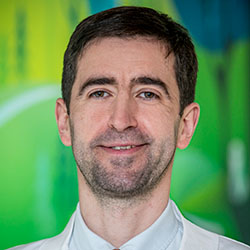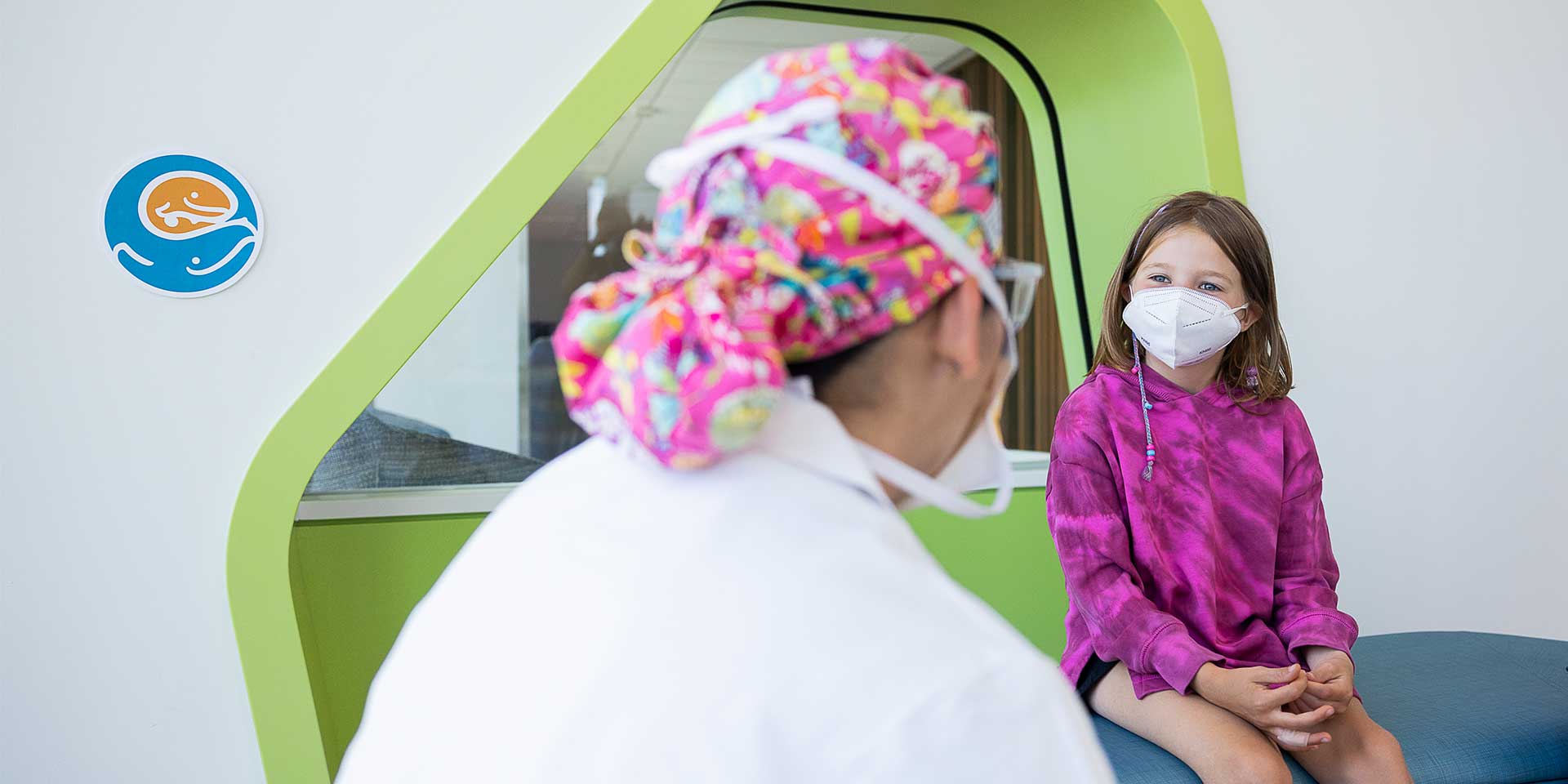
Blood Conservation Program
The Most Advanced Pediatric Blood Conservation
Program in the Country
Seattle Children’s is a national leader in bloodless heart surgery — surgery without using any stored or donated blood products. At Seattle Children’s Heart Center, our Blood Conservation Program provides safe, effective heart care for your child with less need for blood products or a blood transfusion.
We routinely use methods to limit or avoid the need for blood products for all children who come to the Heart Center. We also work closely with families who prefer that their child not receive blood products or transfusions for religious, cultural and personal reasons.
Seattle Children’s has the most advanced pediatric Blood Conservation Program in the country for all cardiac conditions.
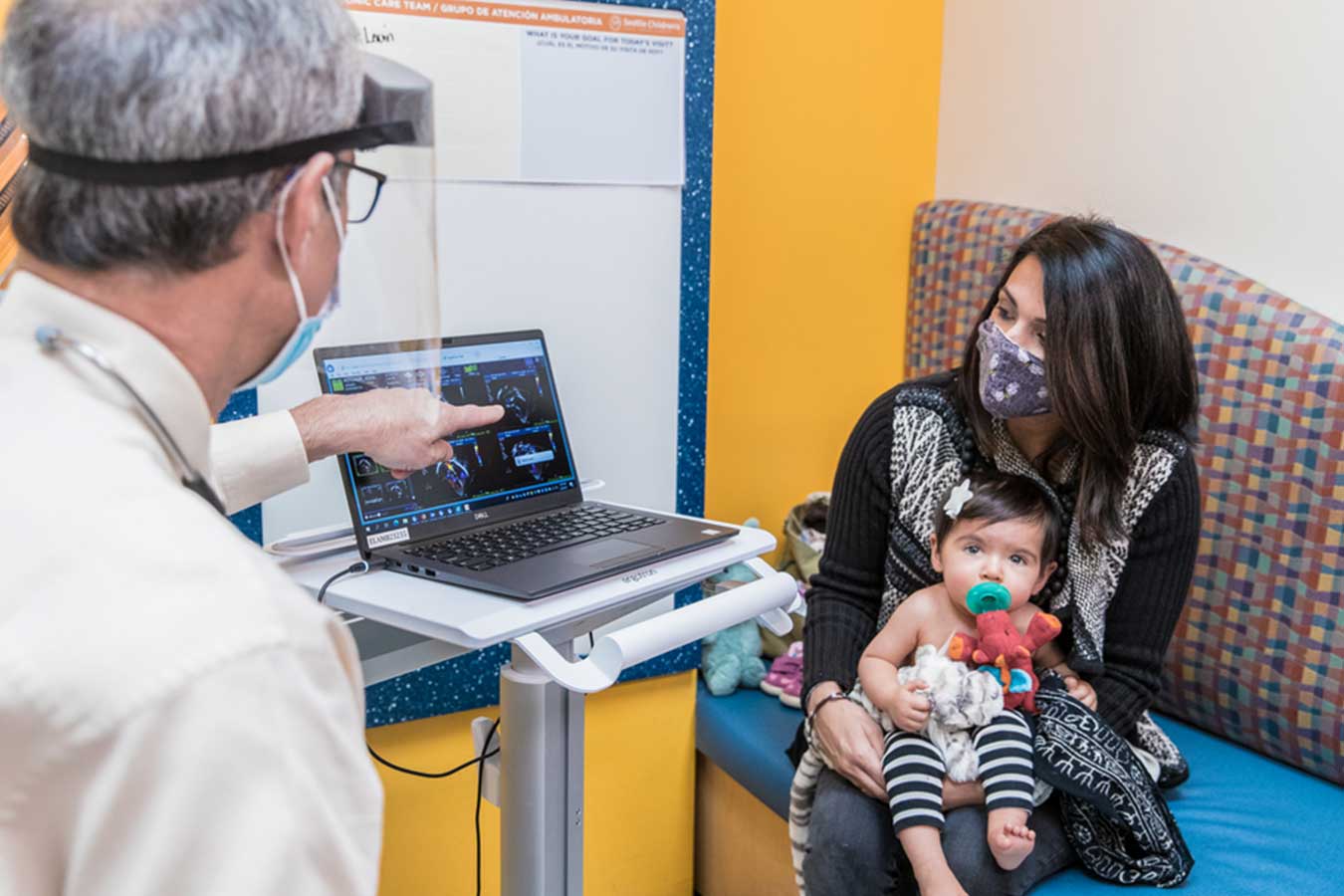
What is a blood transfusion?
A blood transfusion is a treatment to give your child donated blood if their level is too low. We can give whole blood or just parts of the blood, like red blood cells. The whole blood or blood components go into a vein in your child’s arm through an line.
At most hospitals, blood transfusions are an unavoidable part of the care every child gets when they have heart surgery. This is especially true for newborns, infants and other young children. They are small and have less blood to begin with, so they are more likely to get too low on blood. Because of our special expertise in blood conservation, many patients at Seattle Children’s — even tiny newborns — don’t need transfusions.
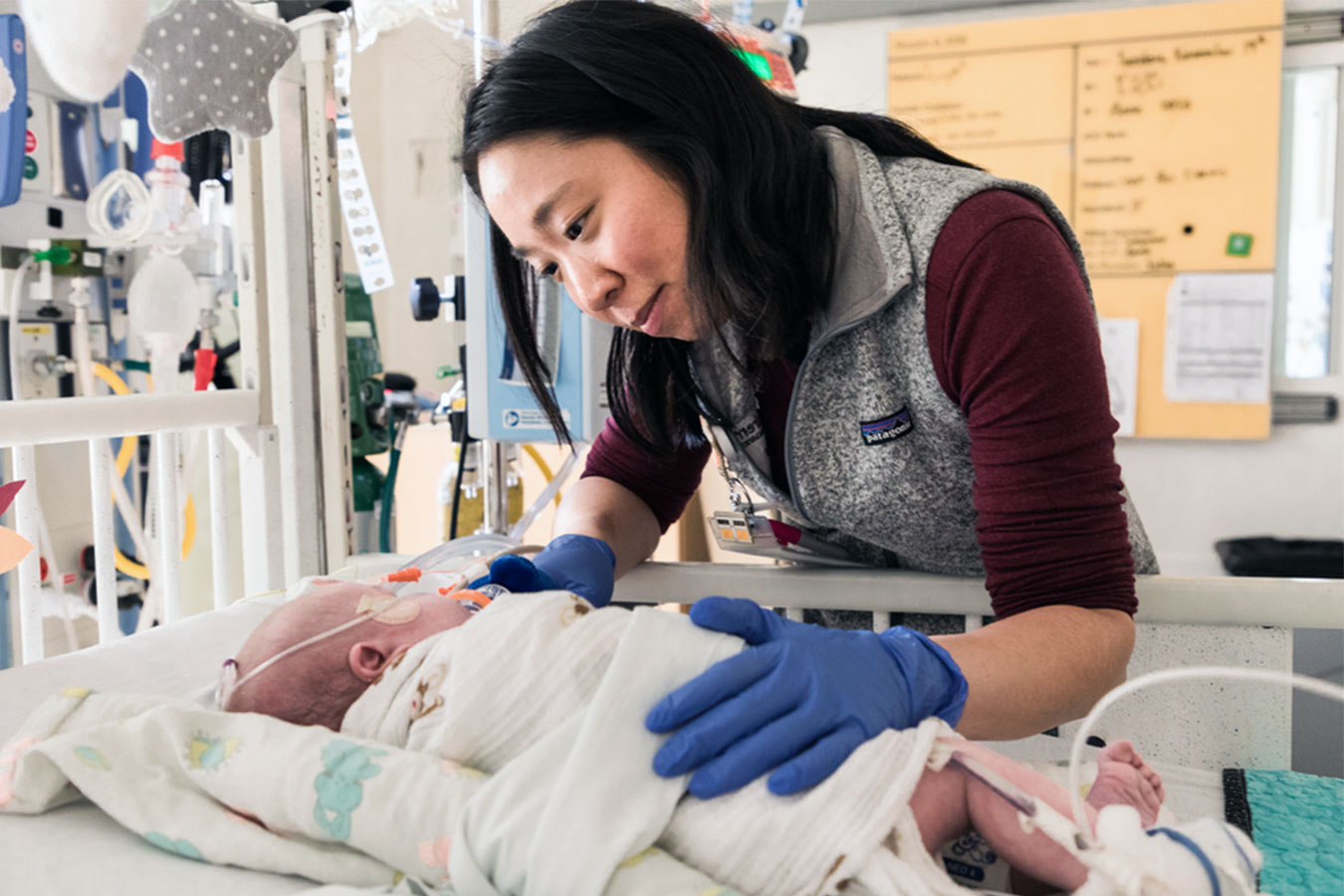
How does Seattle Children’s reduce or avoid transfusions?
Children having heart surgery might get a blood transfusion because they need to be on a heart-lung pump (cardiopulmonary bypass machine) but don’t have enough blood to fill the machine’s tubes. Donated blood can add volume. Or they might lose blood through incisions (cuts) the surgeon has to make during the operation. A transfusion can replace the blood that’s lost.
At Seattle Children’s, our designed a special bypass circuit. It doesn’t have to be filled (primed) with blood, even in the smallest children. Also, our operating team uses a unique way to control bleeding during surgery, so most of our patients don’t need to a transfusion to make up for lost blood.
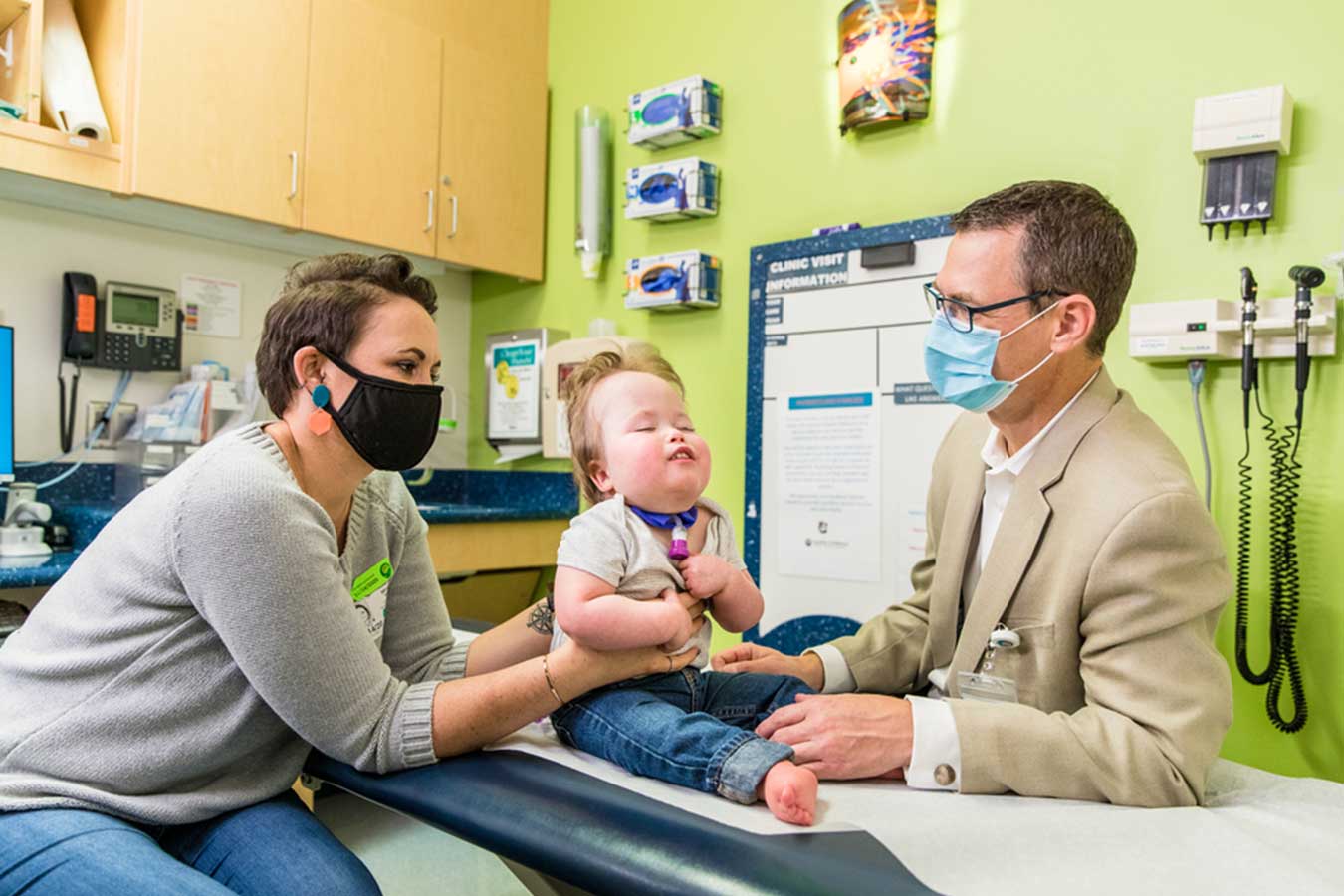
What are blood conservation and bloodless surgery?
Blood conservation means using methods to limit blood loss during surgery. It is the standard of care for all patients at Seattle Children’s. Limiting blood loss can help reduce the need for stored or donated blood products.
For certain surgeries, the use of stored or donated blood products is the standard and is thought to be safest for the child. However, surgery can also be done without stored or donated blood. This is called bloodless surgery, no-blood surgery or transfusion-free surgery.
Based on your child’s needs, bloodless surgery may be a safe option. At Seattle Children’s, we’ve developed ways to make heart surgery just as safe and successful with little to no use of blood products.
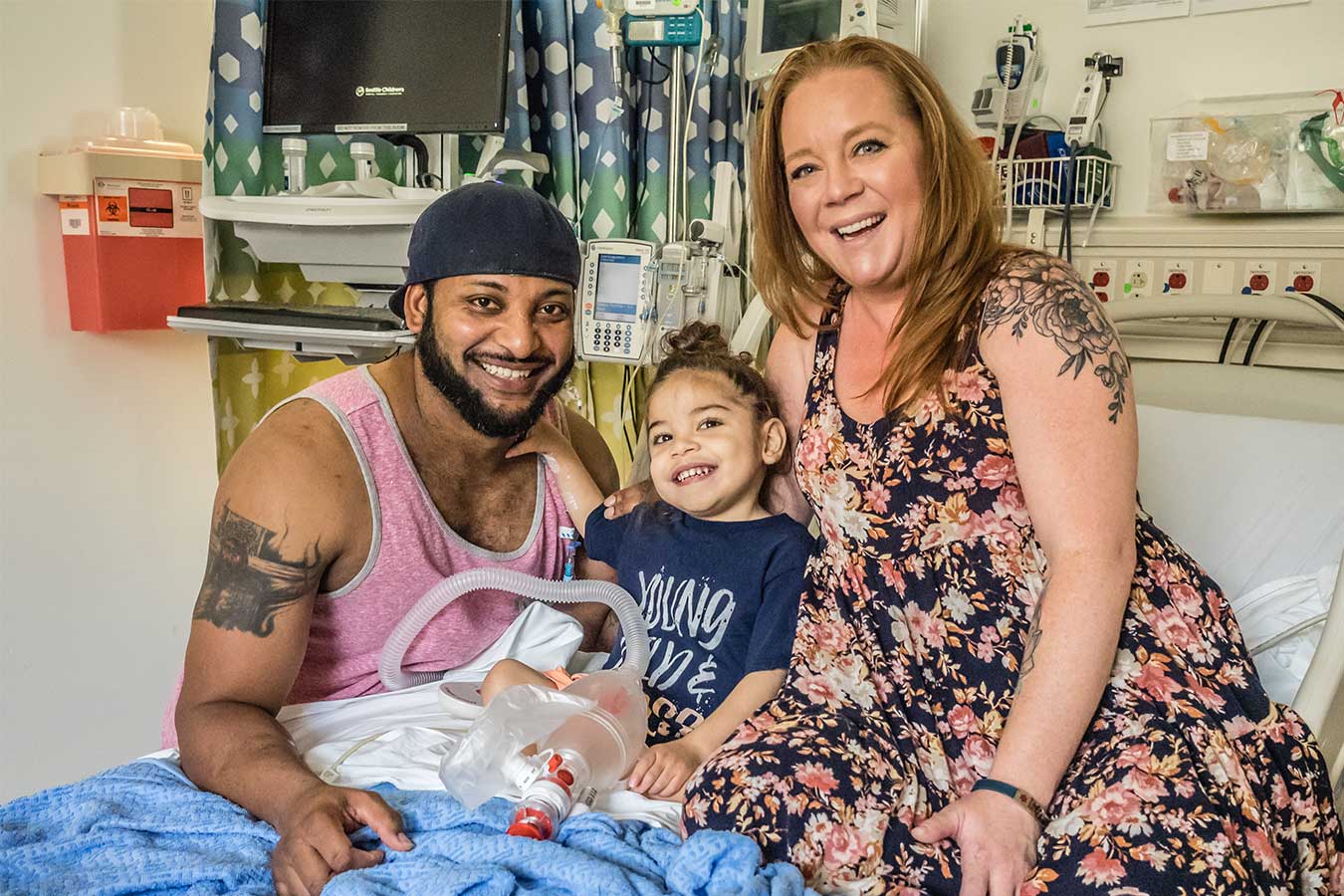
What are the benefits of bloodless surgery?
The risks of getting blood products are relatively low, but some are serious. We believe it’s best to avoid them by avoiding blood transfusions when we can. Our team has proved many patients can safely avoid transfusions — and those who need transfusions can do well with a much smaller volume of blood products than hospitals typically give.
Bloodless surgery has zero risk of issues like getting an infection from a donor’s blood, having an allergic reaction to the blood, or having your child’s immune system destroy the donor’s red blood cells (hemolytic transfusion reaction). Your child’s immune system may also be stronger as they recover, and they may recover faster.
If you have religious, cultural or personal reasons for wanting bloodless surgery, it’s a way to get care aligned with your wishes.
Preventing Transfusions in Newborns
Typically, all newborns need a transfusion during heart surgery, according to data from hospitals across the United States and Canada. At Seattle Children’s, we were able to avoid transfusions in 25% of our newborn patients due to our blood conservation and bloodless surgery expertise.
What’s special about the Blood Conservation Program at Seattle Children’s?
Seattle Children’s Heart Center is dedicated to giving each child the best medical and surgical care with innovations like bloodless heart surgery. If you are choosing a hospital for your child’s heart surgery, we are happy to talk with you in advance about doing bloodless surgery here. Send us a question about bloodless surgery.
When you come to Seattle Children’s, your child will be treated at one of the nation’s top heart centers, as ranked by U.S. News & World Report.
Our focus is on safety
- Your child’s health is always our top priority. Our goal is to lower the risks of surgery for your child by limiting or avoiding blood products or transfusions when we can.
- Blood products and transfusions are used safely in millions of people each year, but they are not completely risk-free. tend to be better in patients who do not receive blood.
- We are experienced with many different methods to conserve blood during your child’s care. Most are the standard for all our heart surgery patients, like doing fewer blood draws. Others will be part of your child’s treatment plan if needed, like giving them iron supplements to boost their .
- The Heart Center follows standard guidelines about when children need blood products or transfusions. If your child does need these measures, we will give them. We do not withhold blood products or transfusions if doing so would put your child at risk.
- We follow practices, like giving only as much blood as your child needs and giving a transfusion later in the surgery instead of earlier. Steps like these help improve outcomes for patients.
Advancing bloodless pediatric heart surgery
- The trend toward blood conservation and bloodless surgery started with adult patients. Seattle Children’s is a leader in bringing the same advances to pediatrics. This requires special knowledge and skills because children have less blood to begin with. The smaller they are, the less blood they have. People with less blood are more likely to need blood products.
- In recent years, we have expanded our blood conservation efforts. This has helped us avoid transfusions for many more patients, even the smallest children. From May 2020 to May 2021, we avoided transfusions for about 2 out of every 100 patients under 26.5 pounds (12 kilograms) who had open-heart surgery. A year later, after expanding our efforts, the number improved to 20 out of every 100 patients.
- We are among very few hospitals that can limit or avoid blood products and transfusions in newborns, whose volume of blood is much lower than in an adult.
- For babies who need a heart-lung pump, Seattle Children’s uses a microcircuit. This special machine can support babies by circulating their small amount of blood, often without the need to add blood products from a donor.
Care custom-made for your child
- We will plan and perform your child’s heart surgery to conserve blood and reduce the need for blood products and transfusions. Multiple studies of bloodless surgery show that it is at least as safe and effective as surgery using stored or donated blood.
- Your child’s team will work closely with you to decide on treatment that is right for your child, taking into account your beliefs and values.
- Before surgery, we will ask you to consent to procedures your child will need or might need. If you object to transfusions, we will talk with you about bloodless surgery options in order to understand, record and follow your wishes whenever possible.
Team-based approach for the best results
- Bloodless surgery requires the skills of many experienced specialists working as a team. Seattle Children’s has the most experienced pediatric cardiologists and heart surgeons in the Pacific Northwest.
- Our surgeons have done complex heart surgeries using bloodless methods. They helped design many of the processes and techniques that other hospitals use around the country.
- Our expert cardiopulmonary perfusionists carefully check and manage blood flow and breathing for children on a heart-lung pump. Their training and experience are essential for bloodless surgery.
- Many more team members will be part of helping to conserve your child’s blood and avoid use of blood products. They include your child’s , , , , nurses and others.
Less Need for Blood Products in Heart Patients
With blood conservation methods, we have greatly reduced the amount of blood products our patients need during their time in the hospital for congenital heart surgery. There is a steady downward trend in the amount used across all heart surgeries, from the simplest to the most complex. Between 2020 and 2023, we reduced our average use of blood products by more than 80%.
Blood Conservation Methods We Use
To lower the chance that your child will need blood products or a blood transfusion, we may use a wide range of methods, including these:
- Nutrition and medicines, such as iron supplements, to improve your child’s blood cell levels before and after surgery
- Fewer blood tests before and after surgery so we are only taking blood from your child’s body when tests are truly needed
- Smaller incisions and less cutting through tissue so your child loses less blood
- Changes to how we set up your child’s heart-lung pump so it uses less blood
- to collect, clean and return lost blood to your child during surgery
- Products not made from blood that we can put on an incision to help control bleeding
- to adjust your child’s blood volume
- Special steps as your child recovers after surgery in the intensive care unit, like taking out their breathing tube as soon as it is safe so they can get nutrition by mouth instead of through an intravenous (IV) line
What to Expect
Before your child’s surgery, we’ll talk with you about the details of their procedure and about using or not using blood products. We’ll also tell you about ways to reduce the need for blood products. For example, your child’s doctor may suggest supplements or diet changes to raise your child’s iron level. Or the doctor may use a medicine to boost your child’s red blood cells. They may also suggest stopping certain medicines that can increase bleeding.
It’s common to need some blood tests before heart surgery. Your child’s team will make a plan to take as little blood as possible to keep your child’s blood level up.
Meet Your Blood Conservation Team
Our experienced team provides the care your child needs in a sensitive and supportive environment. The team is led by Lyubomyr Bohuta, MD, PhD, and includes:
Learn more about your child's treatment options
If you have a referral, please call us at 206-987-2515. For a second opinion, please fill out this form. A second opinion is a chance to confirm the features of your child's disease and get advice on the best treatment options.
Paying for Care
Learn about paying for care at Seattle Children's, such as insurance coverage, billing and financial assistance.
Contact the Heart Center at 206-987-2515 for an appointment, a second opinion or more information.

